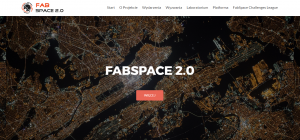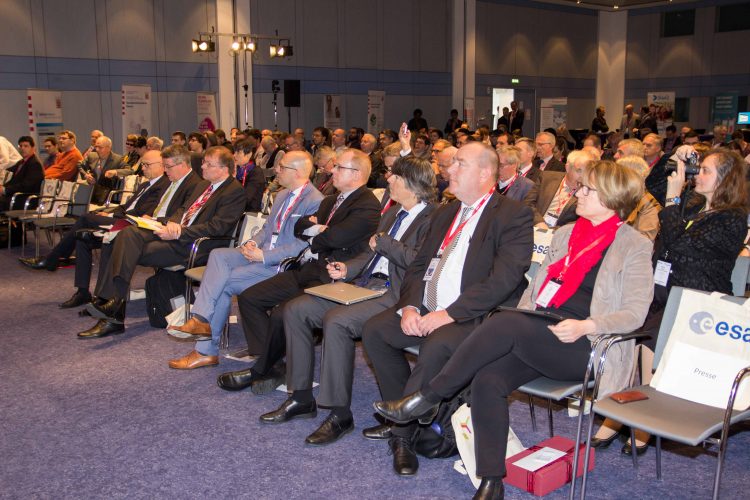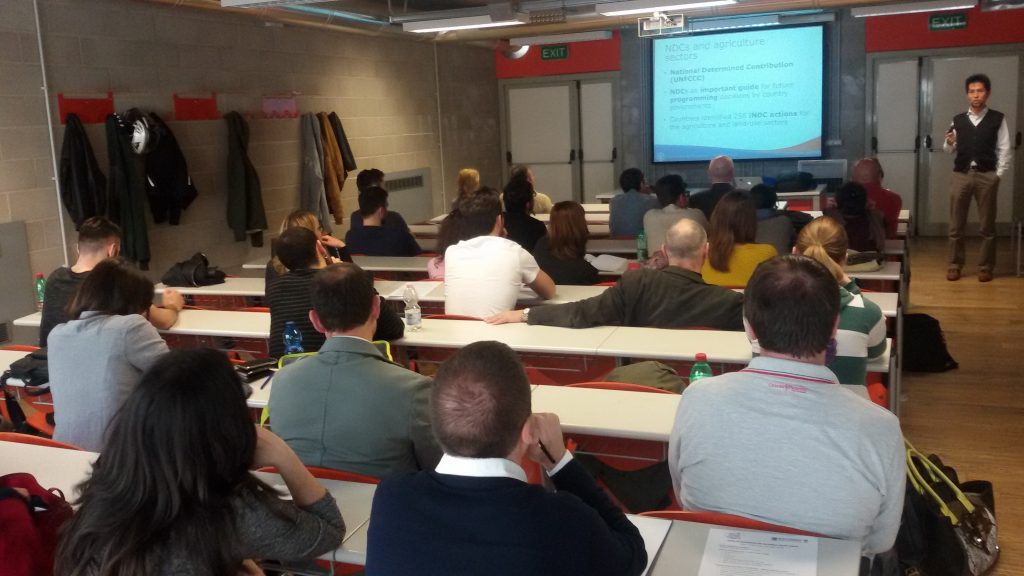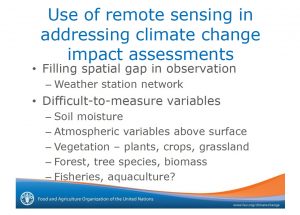FABSPACE in Italy: Transport Infrastructures Local Challenge
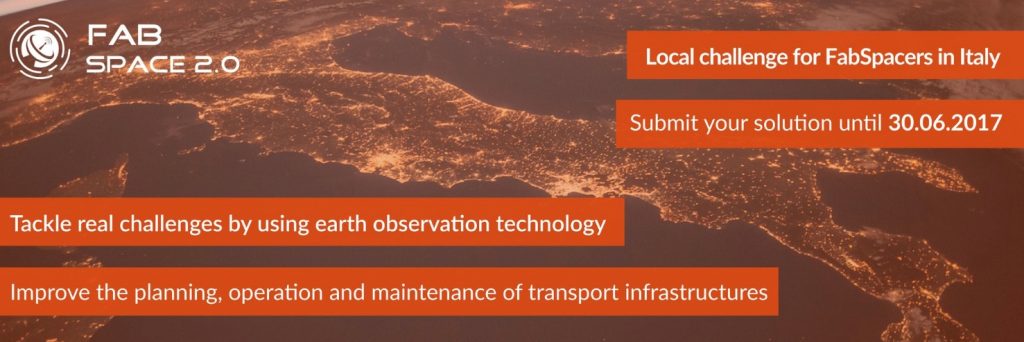
The next 30 June is the dead line for the Italian local challenge submission: Improve the planning, operation and maintenance of transport infrastructures.
Transport is vital to the well-functioning of economic activities and a key to ensuring social well-being and cohesion of populations. Transport ensures everyday mobility of people and is crucial to the production and distribution of goods. Adequate transport infrastructure is a fundamental precondition for transport systems and is one of the most important factors for a country’s progress and competitiveness.
Since the mid-1990s, spending on transport infrastructure has increased significantly across Europe, reaching a peak in 2009. It has subsequently decreased each year. Despite these reductions, in 2014, the level of spending was 8 % higher than in 1995. Roads and rails, by far, attract most of the spending.
Infrastructure growth is slowing, so the maintenance, preservation, and rehabilitation of existing infrastructure are becoming increasingly more important. As public funding shifts from construction to maintenance, maintenance organizations become more accountable to administrators, politicians, and the public for a safe, convenient, and accessible transportation system. This shift in emphasis brings new governance and institutional issues.
Innovations in management systems, resources, materials, technology, equipment, and work methods help improve maintenance effectiveness and efficiency at the network and activity levels. Technology is changing the kinds of information that are available and must be maintained and, as a result, new maintenance procedures and different set of skills are being developed.
The present challenge is aimed at identifying innovative solutions that supports roads and rails planning, operation and maintenance by both transport infrastructure operators and Public Administrations that have policy and controlling roles.
The area of interest will be Italy and in particular Rome and its surroundings.
The remote sensing imagery provided comes from the Sentinel 1 and Sentinel 2 platforms.
Here the challenge announcement.
Find more info at BIC Lazio web site
Rifat this year winner of local Image CLEF 2017 remote task – in Germany.
Finally, the decision of the jury has been made and we have the winner of local Image CLEF 2017 remote task at FabSpace Darmstadt, Germany. His name is Kazi Rifat Ahmed and he won the trip to Dublin (the European event of FabSpace 2.0 project, Image CLEF 2017), thankfully sponsored by Telespazio Vega. While we were shooting our finalists, the result was still a thrill and just after that we had declared and we shot again the expression of the winner. The jury selected the winner according to 1) the accuracy of image processing and population estimation (based on the initial ground truth set from the secondary sources), 2) the diverse methodology used to solve the challenge, 3) the implication of software and tools. Follow the video to see more about his plans for Dublin.
FabSpace 2.0 Darmstadt – Get to know the finalists
Crossing the target line of this year’s Image CLEF 2017 local event at FabSpace Darmstadt, Germany you have the chance to get to know our German finalist Rifat and Philipp. This year, FabSpace managed to get a sponsor for the winner’s trip to Dublin. Telespazio VEGA Deutschland will be sponsoring the German representative to attend the European Image CLEF 2017 event in September. The Darmstadt based aerospace company is one of the shareholders of cesah and was happy to become involved in our exciting competition. Watch the interview between the finalists and Alexandra Sokolowski from Telespazio VEGA and learn about their obstacles and major challenges during their work on the challenge which was to estimate population of an area of interest based on Sentinel-2 satellite imagery. They also talk about their background and different motivation. So next time it might be you! Step up and join the FabSpace network today.
HackOnEarth | Toulouse FabSpace | 19th and 20th of May 2017
The FabSpace of Toulouse organized on May 19th and 20th 2017Â a hackathon with the objective of inventing in 24h the services and products of tomorrow using spatial data. The competition, sponsored by Aerospace Valley and organized in partnership with the Catalyst and IRIT, was open to a wide audience with the dual objective of developing entrepreneurship as well as making known the platform of the FabSpace 2.0 project dedicated to data satellite.
Twenty candidates (including 35% women) in 4 teams had 24 hours to propose an innovative and realistic project. The teams were supervised during the weekend by technical and business coaches who gave them all the keys to present the best project during the passage before the jury. The platform of the FabSpace of Toulouse (open data dedicated to the spatial data) was at their disposal. The projects will benefit from intensive technical and business coaching at the beginning of the academic year.
This hackathon has been supported by the Airbus Defense and Space Intelligence division, which has accessed several types of satellite images (Pleiades, SPOT 6 and SPOT 7) via its Youmapps platform (www.youmapps.com) As well as digital terrain models, on different areas of the globe.
Within the framework of this hackathon, a selfie from spac e was organized thanks to the support of Airbus Defense and Space. One of the two Pléiades satellites was programmed on Wednesday, May 17 to photograph the word FabSpace written on the lawns of Toulouse III University, Paul Sabatier (development made from 400 meters of tablecloths and 275 kg of plaster). The image was sent to participants the same day.
e was organized thanks to the support of Airbus Defense and Space. One of the two Pléiades satellites was programmed on Wednesday, May 17 to photograph the word FabSpace written on the lawns of Toulouse III University, Paul Sabatier (development made from 400 meters of tablecloths and 275 kg of plaster). The image was sent to participants the same day.
FabSpace 2.0 accepted by ESA within the OSEO-CP call!
The FabSpace 2.0 project submitted a proposal to the European Space Agency in the framework of the OSEO-CP call.
The proposal ‘FabSpace 2.0 – the open-innovation network for geodata-driven innovation – by leveraging Space data in particular, in Universities 2.0’ has just been accepted by ESA. These are great news to the FabSpace 2.0 network and the future of FabSpaces!

The Open Science Earth Observation (OSEO) call offers to scientists the opportunity to exploit at no cost a full archive of optical EO data for science, applications and technological innovation, by offering Third Party services which exploit state of the art ICT.
For further information please click here.
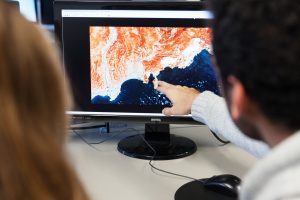
Photo by  TU Darmstadt
FabSpace 2.0 involved at “Global Navigation meets Geoinformation 2017” at ESOC (Darmstadt, Germany)
On April 28th, local FabSpace project country leaders Sascha Heising and Bayzidul Islam were involved this year in the annual conference of “Global Navigation meets Geoinformation organized by cesah GmbH where the participation was about 250 visitors. Through this event FabSpace Darmstadt achieved the 4th Geomatic Day since the opening. The heterogeneous target group of the event varies from students to high level representatives, CEOs and staff of public administrations i.e. “Hessisches Landesamt für Bodenmanagement und Geoinformation”. Sascha Heising was engaged as moderator as well as presenter of FabSpace to the audience. Interestingly the panel discussion moderated by Mr. Heising was about “Satellite navigation and earth observation in a digitalized world”.


Sascha Heising presented a conceptual introduction about FabSpace especially for this event. Following the concept of storytelling, Heising decided to show a use case about shark attacks in Reunion island to illustrate the process chain of FabSpace activity. The story indicated the start of curiosity about earth observation to the data and tools using in Open Innovation and ending at rapid prototype testing in both the physical and virtual FabSpace Lab. Mr. Heising also underlined that FabSpace will be the “First-Step” towards every journey of Make-Create-Innovate with earth observation.
In parallel, Bayzidul Islam promoted FabSpace at the corresponding exhibition booth in the main hall at ESOC. He also promoted the upcoming FabSpace “Startup Week” together with Software AG. In addition to that Dr. Damian Bargiel was also able to give a speech about FabSpace. After the event the FabSpace Darmstadt team received important feedback to strengthen the local FabSpace concept. The event also showed that “FabSpace” is nowadays a well-known term in the Darmstadt and the Rhein-Main space community, thanks a lot for the support given by the participants, ESA/ESOC and all other institutions.

Booth of FabSpace during the conference.
All images: (c) Ines Dombeck, 2017
Find the University of Rome Tor Vergata FabSpace Open Day On YouTube
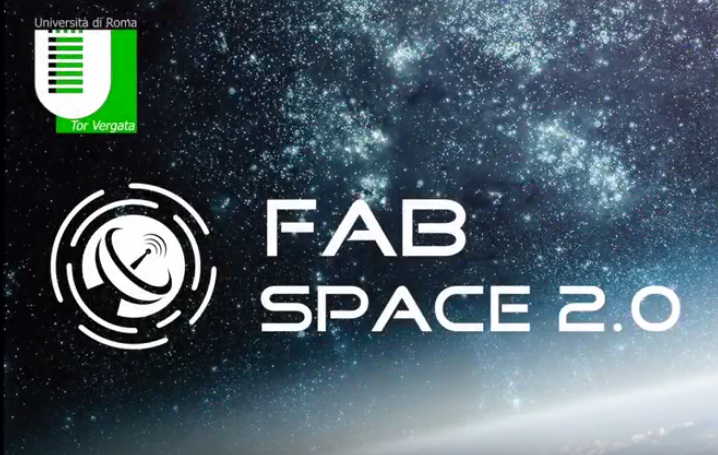
All users can find on YouTube video contributes of the FabSpace Open Day, held at the University of Rome Tor Vergata on 9 th March.
The Atheneum YouTube Channel hosts also the speakers slides presentations.
Enjoy the videos!
CLIMATE IMPACTS ON AGRICULTURE AND FOOD SECURITY: NEEDS FOR ADAPTATION
Which are the climate change impacts on agriculture at global level? How can satellite Earth observations help in this contest? Dr. Hideki Kanamaru from FAO explained some of these issues at the workshop prof. Fabio Del Frate organized on April, 4 at the School of Engineering at the University of Rome Tor Vergata.
Food and Agriculture Organization of the United Nations has been actively working to contribute to national policy planning on climate change, agriculture, and food security – Dr. Kanamaru underlined -. We need to understand better how climate change will affect agriculture and food security. Without that information, countries cannot plan climate change adaptation strategically.
How this can be achieved? Students and researchers took part at the discussion keeping more and more interesting the event.
There are three pillars in climate smart agriculture: increase, in a sustainable manner, productivity and income growth in agriculture; support adaptation across the agricultural sectors to expected climatic changes and build resilience; reduce, where possible, the greenhouse gas emissions of production systems.
For these purposes future approaches would be focused on the use of remote sensing in addressing climate change impact assessments (Filling spatial gaps in observation; investigating on difficult-to-measure variables such as soil moisture or vegetation amounts and types)
The use of remote sensing data is basic for analysis of historical trend; monitoring of current condition; early warning of developing condition (e.g. drought, pests and diseases); nowcasting of rapidly developing extreme events (e.g. flooding, landslide); forecasting (today, tomorrow, 3-days, week, month, season, decades).
The presentation provided an overview of the global issue with a focus on impacts of climate variability on the agriculture sectors and adaptation planning in developing countries. Ideas for enhancing the use of innovative technologies and of datasets from remote sensing and other sources to fill the information gap in the most vulnerable parts of the world should be solicited.
Everywhere and every time!
FabSpace 2.0 in discussion with the Innovation Centre team of Merck
On April 18th Sascha Heising from FabSpace together with Dr. Frank Zimmermann (CEO, cesah GmbH) joined the innovation center staff of Merck in Darmstadt. Merck is a global player in Healthcare, Life Science and Performance Materials. The objective of the meeting was to explore opportunities for future cooperation and the benefits of using earth observation technology. The team of Merck identified several starting points to build on. On the other hand, Sascha Heising and Dr. Frank Zimmermann were impressed by the effort of Merck to trigger new innovation. “The environment and spirit was quite inspiring”, summarizes Sascha Heising his impressions. The team is looking forward to visit the final Innovation Center, which will be ready for operation in the end of 2017 (read more).

from left: Sascha Heising, Matthias Simnacher, Dr. Frank Zimmermann and Hong Wa Poon at the current Innovation Center of Merck (image: FabSpace).
After presenting the scope and goals of FabSpace 2.0 both parties agreed to keep on the discussion and define concrete actions in the next few months.

